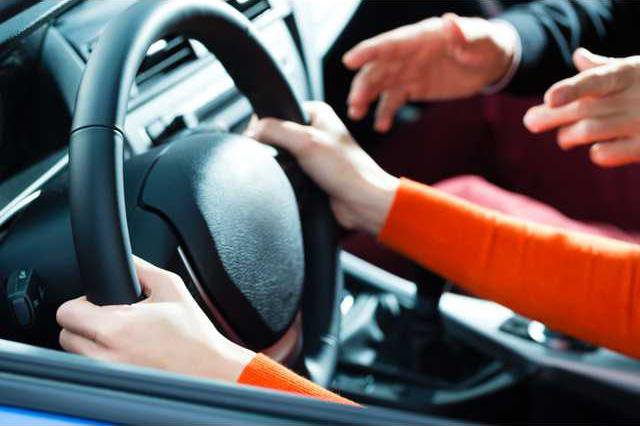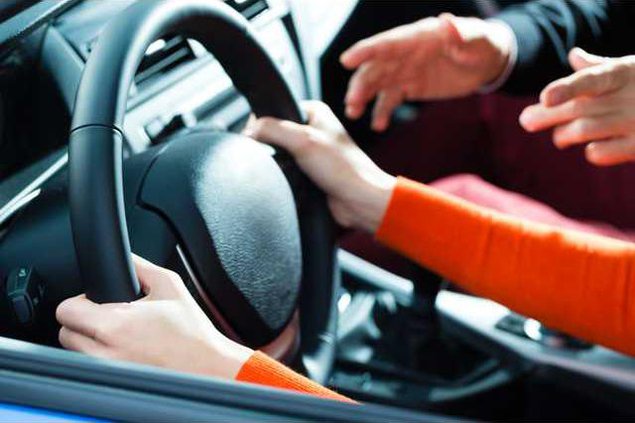Families will get a futuristic upgrade with their cars in the coming years.
Googles self-driving car startup Waymo announced this week at the North American International Auto Show, also known as the Detroit Car Show, that it plans for its self-driving Chrysler Pacifica minivans to hit the roads by the end of January 2017, according to The Verge.
Some early prototypes are on roads in Mountain View, California, and Phoenix, according to The Verge.
But the self-driving minivan isnt the only family-friendly vehicle we saw at the Detroit Car Show. Heres a quick breakdown of four other cars that were on display at the show that are suitable for futuristic families.
2017 Nissan Rogue Sport
Nissans new vehicle will do well with families that head out on windy roads down to Zion National Park. According to Popular Mechanics, Nissan decided to invent a more robust, athletic car with the sport to accompany its popular Rogue vehicle.
The upside? Those tidy dimensions should make this ride far more athletic. The Rogue Sport uses a four-wheel independent suspension to deliver a few more smiles on twisty roads, too, according to Popular Mechanics.
2018 Honda Odyssey
OK, so, we know of seven- and eight-passenger SUVs, like the aforementioned Rogue. But what about a larger minivan to get around if need be?
Cue the Odyssey.
Hondas latest minivan vehicle includes innovative Magic Slide seats, which allow the second row of seats to slide forward and backward, or in a number of other positions, to make room for the entire family in a convenient and comfortable way.
It also includes the CabinTalk feature, which lets parents talk to the kids when they are wearing Honda's rear entertainment headphones. Smart, according to Popular Mechanics.
Oh, and it comes with an in-car vacuum cleaner. Say goodbye to messes.
2018 Chevy Traverse
Back to the SUVs. We know the Traverse has been a popular car for Chevy among SUV drivers, but this new model may be good for families.
The reason? Its roomy, and it includes a second row that can flip forward even when a car seat is installed, Popular Mechanics explained.
Volkswagen I.D. Buzz
Time traveling with your family back to the 1960s? Well, this VW reboot is perfect for you.
The new concept car is an electric take on the old microbus. It will allegedly hold 270 miles per charge, which is in Tesla territory, according to USA Today.
It also sports some developments that will be helpful for families.
With one electric motor in front and one in back, the ID Buzz has all-wheel drive. It is also capable of fully autonomous driving, CNN Money reported. The driver's seat can even be turned around 180 degrees to face backward and the steering wheel can also retract into the dashboard.
Googles self-driving car startup Waymo announced this week at the North American International Auto Show, also known as the Detroit Car Show, that it plans for its self-driving Chrysler Pacifica minivans to hit the roads by the end of January 2017, according to The Verge.
Some early prototypes are on roads in Mountain View, California, and Phoenix, according to The Verge.
But the self-driving minivan isnt the only family-friendly vehicle we saw at the Detroit Car Show. Heres a quick breakdown of four other cars that were on display at the show that are suitable for futuristic families.
2017 Nissan Rogue Sport
Nissans new vehicle will do well with families that head out on windy roads down to Zion National Park. According to Popular Mechanics, Nissan decided to invent a more robust, athletic car with the sport to accompany its popular Rogue vehicle.
The upside? Those tidy dimensions should make this ride far more athletic. The Rogue Sport uses a four-wheel independent suspension to deliver a few more smiles on twisty roads, too, according to Popular Mechanics.
2018 Honda Odyssey
OK, so, we know of seven- and eight-passenger SUVs, like the aforementioned Rogue. But what about a larger minivan to get around if need be?
Cue the Odyssey.
Hondas latest minivan vehicle includes innovative Magic Slide seats, which allow the second row of seats to slide forward and backward, or in a number of other positions, to make room for the entire family in a convenient and comfortable way.
It also includes the CabinTalk feature, which lets parents talk to the kids when they are wearing Honda's rear entertainment headphones. Smart, according to Popular Mechanics.
Oh, and it comes with an in-car vacuum cleaner. Say goodbye to messes.
2018 Chevy Traverse
Back to the SUVs. We know the Traverse has been a popular car for Chevy among SUV drivers, but this new model may be good for families.
The reason? Its roomy, and it includes a second row that can flip forward even when a car seat is installed, Popular Mechanics explained.
Volkswagen I.D. Buzz
Time traveling with your family back to the 1960s? Well, this VW reboot is perfect for you.
The new concept car is an electric take on the old microbus. It will allegedly hold 270 miles per charge, which is in Tesla territory, according to USA Today.
It also sports some developments that will be helpful for families.
With one electric motor in front and one in back, the ID Buzz has all-wheel drive. It is also capable of fully autonomous driving, CNN Money reported. The driver's seat can even be turned around 180 degrees to face backward and the steering wheel can also retract into the dashboard.



